Child psychiatrists have extensive training in the area of pediatric psychiatric disorders - these physicians specialize in the diagnosis and treatment of disorders such as ADD or ADHD.
Watch an Overview of Child Psychiatry
About Child Psychiatry
Pediatric psychiatrists are physicians who are highly trained to diagnose and treat psychiatric disorders in children, which can be very different from those present in adults. Child psychiatrists draw upon their training to assess any psychological, biological or social factors that may be contributing to the child’s disorder – evaluating these factors assist the physician when performing both diagnostic and treatment procedures. Pediatric psychiatrists are expected to act on behalf of the best interests of each child, providing care as an advocate for their health and best interests.
When providing care, child psychiatrists will complete an initial diagnostic examination, paying close attention to any of the child’s developmental, emotional, genetic, physical, family, educational, peer and social contributing factors. In this field of medicine, parents and guardians play a vital role as they help the physician to understand all of the facets of a child’s disorder.
After arriving at a diagnosis, a comprehensive treatment plan is created. The doctor will consult closely with the family to discuss his/her highly individualized recommendations for each specific case. Treatments may include the prescription of medications, as well as individual or group psychotherapy; pediatric psychiatrists often consult with other physicians or health care providers such as social organizations or juvenile courts. Child psychiatrists provide care in a variety of different environments, including private practice, within schools or as part of social agencies or juvenile courts.
Child Psychiatry Education & Training
The education and training to become a child psychiatrist entails a rigorous program of study that begins with the completion of an undergraduate degree, followed by an MD or DO medical degree. Physicians who are training to become pediatric psychiatrists must first undertake at least three years of residency training in neurology and general psychiatry following graduation from medical school. During a general psychiatry residency the physician will gain general knowledge in theory and practice of adult psychiatry, attaining the knowledge and skills that will allow them to further specialize within the field.
Following a residency, the physician must complete a two year fellowship in the specialized area of child psychiatry. During a child psychiatry fellowship, the physician will be trained in the various facets of pediatric psychiatry while working with children, adolescents and their families in a clinical setting. During this fellowship, the physician will become versed in the field of child and family development, psychopathology, and related treatment techniques. The physician will focus on the psychiatric disorders that are prevalent in children, such as various developmental disorders, learning disabilities, attention-deficit hyperactivity disorder (ADHD), anxiety disorders and various other conditions and disorders.
Pediatric psychiatrists work with experienced physicians, mental health professionals, social agencies and schools as a core part of their training and education. Although certification is not required to practice, many pediatric psychiatrists choose to seek board certification in general psychiatry from the American Board of Psychiatry and Neurology (ABPN). After completion of this examination, the physician is eligible to take a certification exam in the specialized area of pediatric psychiatry. Like other physicians, pediatric psychiatrists enroll in continuing education programs, where they will learn about new studies and diagnosis and treatment techniques. As with all other physicians, child psychiatrists must hold a valid medical license to practice medicine in any given state.








